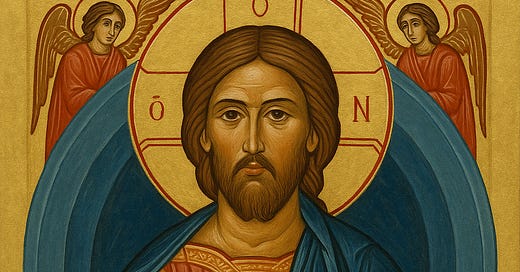Theosis: Becoming Partakers of the Divine Nature
An Anglo-Catholic Reflection on Our Ultimate Calling
In the Christian East, the term Theosis (or divinization) captures one of the most breathtaking and hopeful aspects of salvation: that in Christ, human beings are not merely forgiven, but transformed—made “partakers of the divine nature” (2 Peter 1:4). While Western Christianity has sometimes emphasized legal and forensic aspects of salvation, Theosis offers an ontological vision: one in which grace does not merely cleanse, but elevates; it does not only restore, it glorifies.
For Anglo-Catholics, this teaching should not feel foreign. Rather, it stands at the very heart of our sacramental, liturgical, and incarnational theology.
What Is Theosis?
Theosis is the process by which the human person, through union with Christ and the indwelling of the Holy Spirit, is made like God—not by nature, but by grace. St. Athanasius summarized it most clearly:
“God became man so that man might become god.”
(On the Incarnation, 54.3)
We are not absorbed into God as in Eastern mysticism, nor do we become divine in essence. Instead, we are drawn into God's life, conformed to the image of His Son, and filled with the Holy Spirit. This is the deep meaning behind St. Paul’s language of transformation (Romans 12:2), sanctification (1 Thessalonians 5:23), and glorification (Romans 8:30).
Anglican Roots of Theosis
Though not often labeled “Theosis,” the idea is not foreign to Anglican tradition:
Lancelot Andrewes wrote of the Eucharist as a real participation in the divine.
Richard Hooker described union with Christ as the foundation of the Christian life, writing that we “participate in Christ” in a real, mystical way.
The Caroline Divines and later the Oxford Movement emphasized sanctification and communion with God as the true end of the Christian life.
For these Anglicans, salvation was more than justification—it was the beginning of transformation into holiness, beauty, and divine likeness.
Theosis in Anglo-Catholic Practice
Anglo-Catholicism, with its deeply sacramental theology, is uniquely equipped to nurture this transformation. The life of Theosis is not esoteric or abstract—it is embedded in the ordinary life of faith, centered in Word and Sacrament.
1. Sacraments as Channels of Divine Life
Each sacrament is a means by which divine grace transforms us:
Baptism unites us to Christ and makes us members of His Body.
Confirmation seals the Spirit, strengthening us for holiness.
The Eucharist is the most intimate act of Theosis, where Christ feeds us with His own life, making us what we receive.
Confession purifies the soul, removing obstacles to grace.
Holy Orders, Marriage, and Unction shape the soul in various vocations toward holiness.
2. Liturgy and Time Made Sacred
The Divine Office, the Christian Year, and the reverent liturgy of the Church sanctify time and habituate the soul to God. Incense, chant, vestments, sacred space—all lift the heart and train the imagination toward heaven.
3. Ascetical and Mystical Devotion
Theosis demands participation. Fasting, prayer, almsgiving, and silence are not merely pious extras but form the body and soul into receptacles of grace. The Rule of Life, practiced by religious and laity alike, offers structure for transformation.
4. Communion with the Saints
The saints, especially the Blessed Virgin Mary, are not distant figures but companions who have reached the goal. They model Theosis and intercede for us as we walk the same path.
Theosis: A Timely Word for Today
In an age of secular despair and spiritual shallowness, the vision of Theosis is profoundly healing. It tells us that:
We are not made for mere survival or moral effort—we are made for union with God.
Salvation is not simply a one-time decision—it is a lifelong transformation.
The Church is not a religious club—it is the ark of deification, the Body of Christ through which divine life is imparted.
Theosis challenges a minimalist Christianity. It calls the believer to move beyond being a churchgoer or a rule-follower. It beckons us toward sainthood—toward becoming, by grace, what Christ is by nature.
“Become What You Receive”
At every Mass, we approach the altar to receive Christ truly and sacramentally. As Augustine once preached to neophytes:
“Behold what you are; become what you receive.”
This is Theosis in action—daily, weekly, and over a lifetime.
Let us reclaim this truth. Let our altars be places of transfiguration. Let our parishes be schools of holiness. Let our liturgy, our sacraments, our devotion, and our lives point to the breathtaking truth that Christ came not only to save us from sin—but to make us sons and daughters of God.





